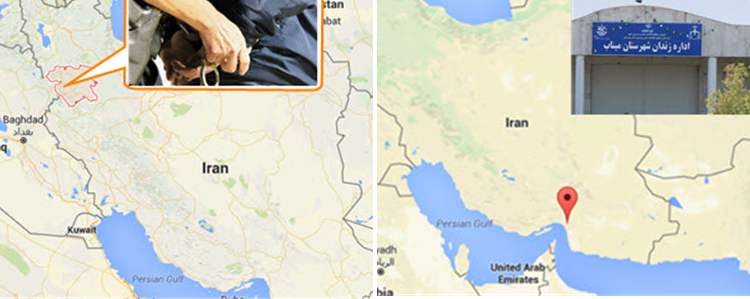
The National Council of Resistance of Iran (NCRI) reported on its website ( www.ncr-iran.org ) that at least 20 members of Iran’s Kurdish minority were arrested or kidnapped over the Nowrouz (Iranian New Year) holiday period.
Twenty people have been transferred to detention and interrogation centres or prisons in western Iran (Sanandaj and Bukan). Four siblings of Farhad Vakili, the Kurdish political prisoner who was executed in 2010, were some of those held in Sanandaj.
NCRI said that at least 15 people who were enjoying Nowrouz celebrations in Bukan were arrested and were taken to an unknown location.
Reports also indicate that MOIS (the Iranian regime’s notorious Ministry of Intelligence and Security) agents arrested a young man called Saeid Naderi. He too is said to have been taken to an unknown location.
Meanwhile, an ex-prisoner of Minab jail (southern Iran) has revealed a pattern of systematic abuse that takes place under the authority of the regime’s prison guards. He recounted how regime wardens rape and torture prisoners.
He claims that wardens use a “structural column (…) to tie the hands and feet of prisoners so that the prisoner cannot turn his head. The prisoners are kept in this state as a form of punishment which can last as long as 10 to 15 days”.
The NCRI say that the mullahs’ henchmen call these columns “places of worship” and assert that prisoners are cured of their “ills” and “wrong-doings” as a result of this form of torture. It is also known that many prisoners are left to survive in very poor conditions – namely
horrendous hygiene standards, poor quality of food and negligible medical care including inadequate medicine. Even worse, some prisoners are completely denied any medical care.
Approximately one thousand prisoners are held in this prison where young inmates are often subject to rape.
On Wednesday, the UNHRC voted to extend Dr. Ahmed Shaheed’s mandate. Dr. Shaheed is the UN Special Rapporteur on the Situation of Human Rights in Iran. The NCRI reported that political prisoners in Iran, including supporters of the main opposition People’s Mojahedin Organization of Iran (PMOI or MEK), wrote to council members urging them to support the extension of Dr. Shaheed’s mandate in this Council session.
In his latest report, presented to the UNHRC in Geneva on 14th March, he highlighted that the Iranian regime has executed nearly a thousand prisoners during the course of 2015 – the highest rate in a decade. Dr. Shaheed continues to express his concerns regarding the alarming numbers of executions carried out in Iran and in particular the execution of young offenders; just one of many fundamental flaws seen in Iran’s administration of justice.







